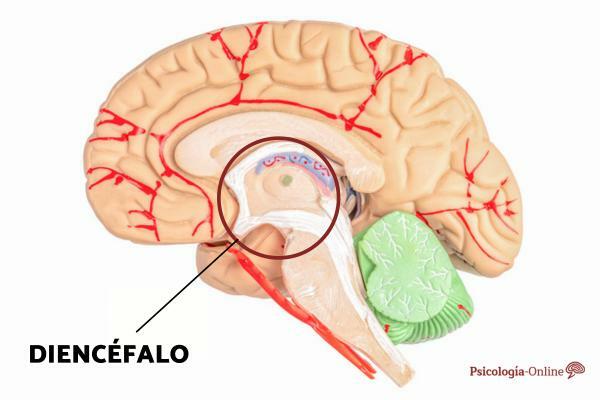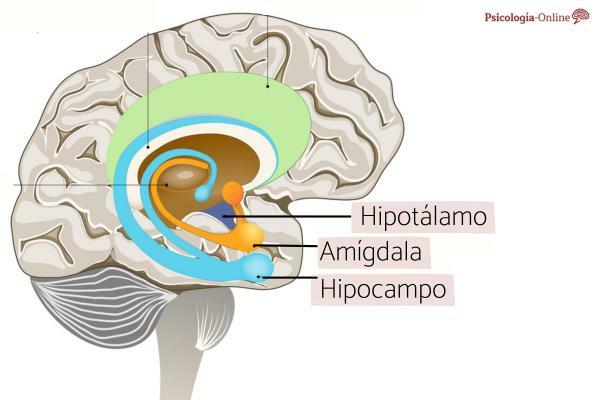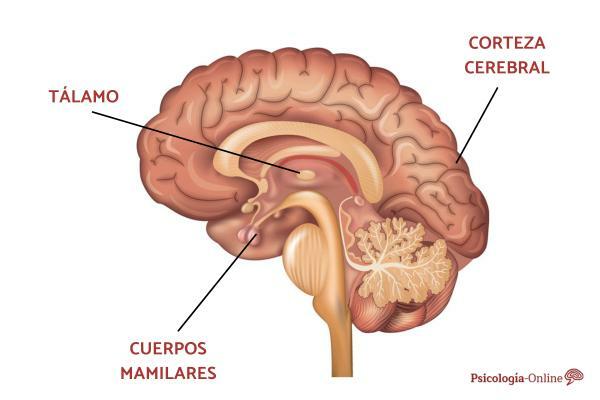
Senile dementia is one of the most common terms to refer to dementia that appears in advanced ages, and is characterized by impaired cognitive abilities. These skills include attention, memory, language, etc. It is different from normal senility in older people which is characterized by gradual loss of memory, other cognitive abilities, and some striking personality changes.
The two best known types of senile dementia are Alzheimer's dementia and dementia caused by vascular problems. In this Psychology-Online article we explain the senile dementia, its symptoms and phases.
Some of the symptoms present in first phases of dementia are:
- Forgetting recent events (distant or old memories are also forgotten when dementia is in more advanced stages).
- Reasoning, calculation and adaptation difficulties.
- Confusion about time, places, directions, etc.
- Impaired judgment
- Personality changes
In the intermediate phases of dementia, some symptoms are:
- Loss of cognitive skills such as learning, reasoning, and judgment
- Emotional instability, irascibility, agitation ...
- Need for some help to carry out basic activities of daily life.
- Nighttime and daily confusion, which can affect the sleep of people who live with the person with dementia.
Symptoms of final phase in senile dementia:
- Loss of all cognitive abilities
- Inability to self-care, such as eating, bathing ...
- Lack of personal hygiene
- Incontinence
- Gradual weight loss
- Walking unsteady until finally falling

Health professionals often speak of phases of dementia to refer to the progression of the disease. Defining dementia in phases helps doctors determine the most appropriate guidelines. There are numerous scales, the most commonly used is the Reisberg Global Impairment Scale (GDS), which establishes 7 phases of dementia depending on the degree of cognitive impairment. This makes it suitable for dementias such as Alzheimer's and not so much for those in which there is not a great impairment of cognitive abilities as is the case of frontotemporal dementia.
The 7 established phases by the GDS are:
Phase 1. Not dementia. No cognitive impairment
In this phase, the person functions normally, there are no subjective memory complaints and has good mental health.
Phase 2. Not dementia. Very mild cognitive impairment
The person presents forgetfulness associated with aging. For example, forgetting familiar names and objects. But these losses are so slight that they are not perceived by relatives or doctors. The affectation is not clinical, they are forgetfulness considered normal.
Phase 3. Not dementia. Mild cognitive impairment
In this phase there is already an increase in forgetfulness, more difficulty concentrating and a decrease in activity. The person may get lost at some point or have difficulties finding the right words. It is in this phase when family members begin to perceive the symptoms in the person. It can start 7 years before the onset of dementia.
Phase 4. Early dementia Moderate cognitive impairment
This phase includes trouble concentrating, memory loss of recent events, and difficulties handling money or traveling alone to new places. The person has difficulties to perform complex tasks efficiently or accurately and may deny some of the symptoms. They may isolate themselves from their family or friends, as socialization becomes very difficult. In this phase, doctors can clearly detect cognitive problems during an interview or evaluation. This phase can last an average of 2 years.
Phase 5. Moderately severe cognitive impairment
Here they appear more severe memory deficits and help from others to perform basic activities of daily living (dressing, bathing, preparing food) is necessary. The memory leaks they are more frequent and interfere more with life. For example, not remembering your address, phone number, or not knowing what time or day it is. This phase can last on average 1.5 years.
Phase 6. Severe cognitive impairment
Needed total attendance to carry out activities of daily living. There is forgetfulness of names of close people, difficulty in counting, completing tasks and deficits in memory of recent events (only a few details can be remembered from the first years of his lifetime). Incontinence is a problem in this phase. Speech is also greatly affected and personality changes occur, illusions (believing that something is true or real when he is not), compulsions (repeating a simple behavior, such as cleaning) or anxiety and agitation. This phase can last 2.5 years on average.
Phase 7. Late dementia Very severe cognitive impairment
The person already has no ability to speak or communicate, needs assistance with basic aspects such as going to the bathroom or eating and has a loss of psychomotor skills, such as walking. The duration of this phase can be 2.5 years.

Senile dementia caused by depression, poor nutrition, thyroid dysfunction, alcoholism… Can be corrected if those underlying problems are addressed.
Alzheimer's and vascular dementia are degenerative diseases and today there is no effective treatment. It is best to recognize the early symptoms of the disease so that the person can be evaluated and diagnosed for thus begin to carry out guidelines and take some type of medication that favors the slowing of the progress of the disease.
If you recognize the symptoms of senile dementia in a family member, some steps to follow are the following:
- See your doctor to confirm the diagnosis.
- Participate in self help groups of relatives of people with senile dementia. This can help ease the pressure of caring for a person with dementia, as you must first be okay to care for a dependent person. That is why you should try to avoid the Burnout syndrome caregiver syndrome or caregiver syndrome.
- Use the available resources at your fingertips: home help, day centers, etc.
- Discuss the situation with the rest of your family or people close to you, so that there is a greater understanding on the part of the environment.
- Make necessary changes at home to prevent accidents.
- Establish a daily routine to reduce feelings of confusion.
There is currently no effective way to prevent Alzheimer's dementia. However, the vascular dementia it is due to vascular problems and can be prevented through healthy lifestyle habits.
This article is merely informative, in Psychology-Online we do not have the power to make a diagnosis or recommend a treatment. We invite you to go to a psychologist to treat your particular case.


